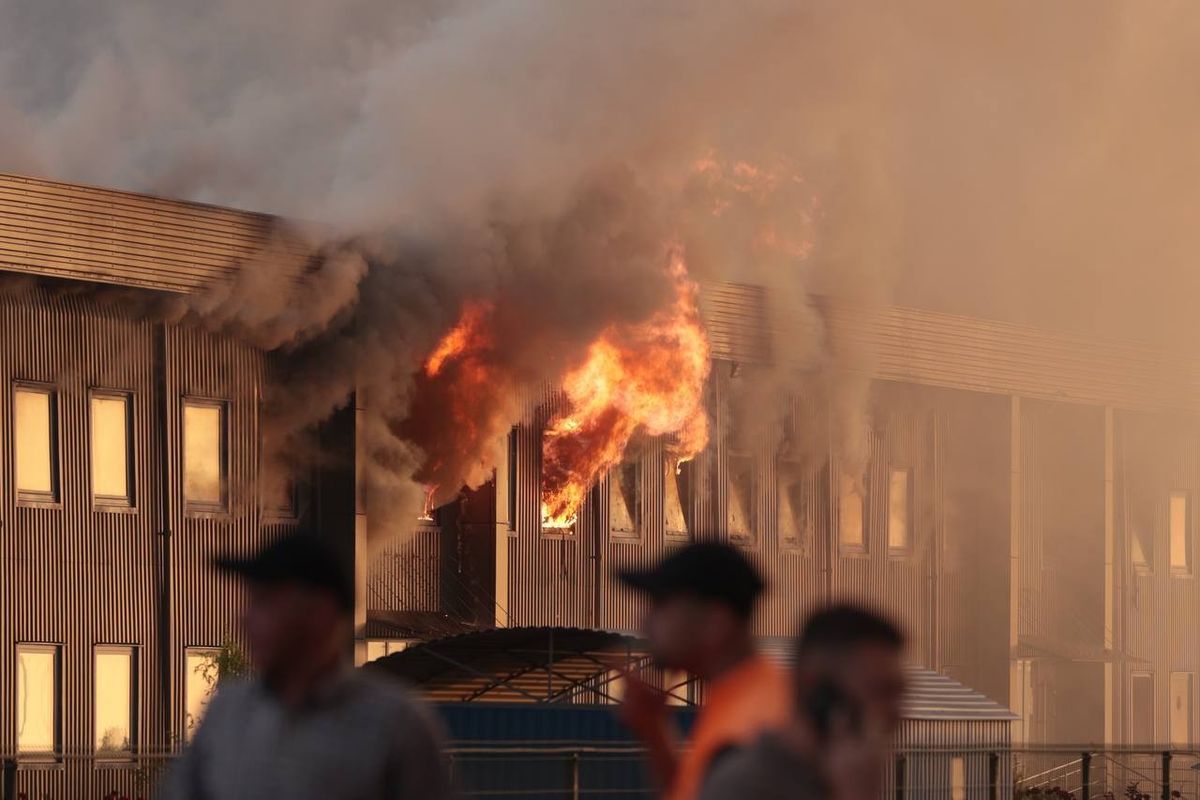Three former national security officials have raised concerns about President Donald Trump’s reported plans to loosen restrictions on drone strikes.
The former officials were responding to recent reports that the Trump Administration was working to lessen Obama-era restrictions on drone strikes, including easing rules to avoid civilian casualties.
It is difficult to avoid “collateral issues and damage” with drones, Paul Pillar, former National Intelligence Officer for the Near East and South Asia, said that “increases resentment and radicalization, which can lead to increased anti-U.S. terrorism.”
Those civilian casualties have been a point of controversy – both as a focus for criticism and because the numbers are contentious. The use of armed drones in counterterrorism operations began under President George W. Bush, but the program was dramatically expanded under President Barack Obama as a major component of his administration’s counterterrorism policy.
Micah Zenko, a Senior Fellow at the Council on Foreign Relations wrote in January of last year that Bush had authorized about 50 drone strikes killing 296 terrorists and 195 civilians in Yemen, Pakistan, and Somalia, and the 506 strikes that Obama had authorized were estimated to have killed 391 civilians and 3,040 terrorists. The Bureau of Investigative Journalism said earlier this year that reports indicate that during Obama’s two terms, civilian deaths were somewhere between 384 and 807.
Former CIA Deputy Director Michael Morell, in his book, The Great War of Our Time, though, called claims of significant collateral damage “highly exaggerated,” flowing from propaganda produced by al Qaeda and other groups, including the use of unrelated civilian deaths and from other misinformation. For example, parents of a deceased terrorist who do not believe that their son was really a terrorist will tell a reporter that, so that the death is recorded as a collateral casualty.
Nevertheless, Pillar, now a non-resident senior fellow at Georgetown University’s Center for Security Studies, said the reported Trump move “probably means even more collateral damage from the strikes.”
“Some proposed operations that earlier might have been disapproved because of the proximity of civilians may now proceed,” he wrote in an email.
Daniel Benjamin, Ambassador-at-Large and Coordinator for Counterterrorism at the State Department during the Obama administration, said he has concerns because the Trump approach could become a recruitment boon for the terrorists. According to Benjamin, the Obama approach “led to low levels of civilian casualties” that spurred “limited blowback in the form of further radicalization.”
“If there are more civilian casualties, that will change the calculus. It won’t be great news for us if we start seeing lots more young men being recruited for terrorist organizations because we’ve gotten sloppy with our firepower,” he said.
Also raising issues was Douglas Wise, a career CIA officer who was Deputy Director of the Defense Intelligence Agency from 2014 to 2016. Wise told The Cipher Brief that “fewer limitations could make drones more effective, but also mean there is a higher probability that a mission manager would allow an operation to be done which would have exceeded what the President believes appropriate.”
“When you relax the limitations you, as president, have automatically delegated a great degree of flexibility to a lower level,” he said. “Thus, you have to be prepared to accept the consequences of a subordinate decision-maker exercising a broader range of flexibility and options.”
Benjamin, now the Director of the John Sloan Dickey Center for International Understanding at Dartmouth, said it seems “inevitable” the Trump team would want to loosen guidance on drone strikes “because, despite all of Trump’s baloney about secret plans for dealing with ISIS, the existing counterterrorism playbook is the best approach there is.”
However, he said, lowering standards on civilian casualties is not certain to yield “a big change in tempo” since there are still limits on the availability of drones.
Steve Hirsch is a senior national security editor at The Cipher Brief. Follow him on Twitter @stevehirschnews.














